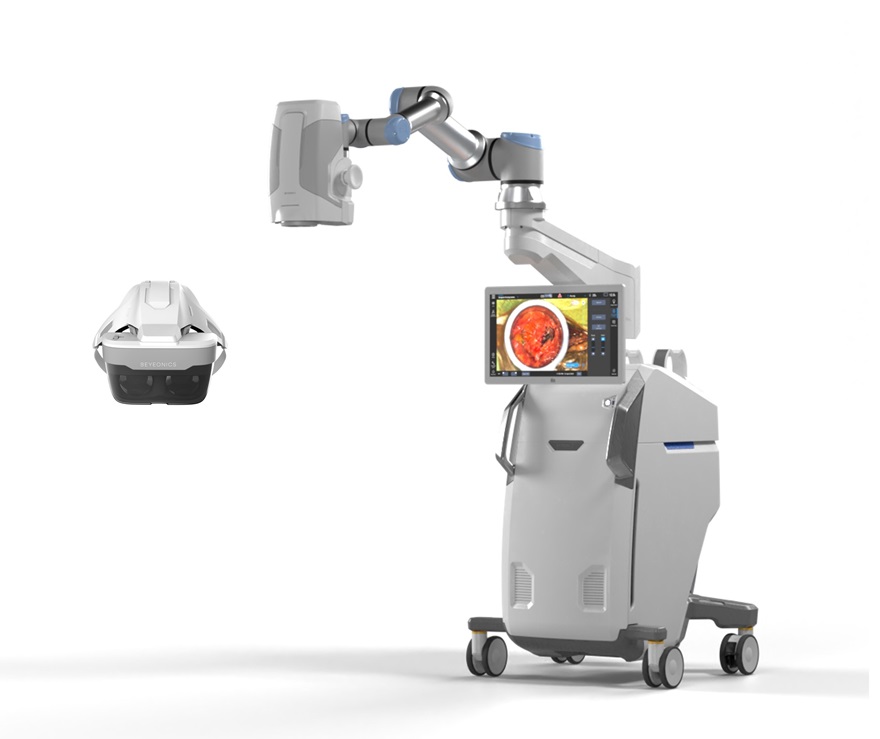Innovative Medical Alert System Uses GPS and Cellular Technology
|
By HospiMedica International staff writers Posted on 15 Dec 2009 |
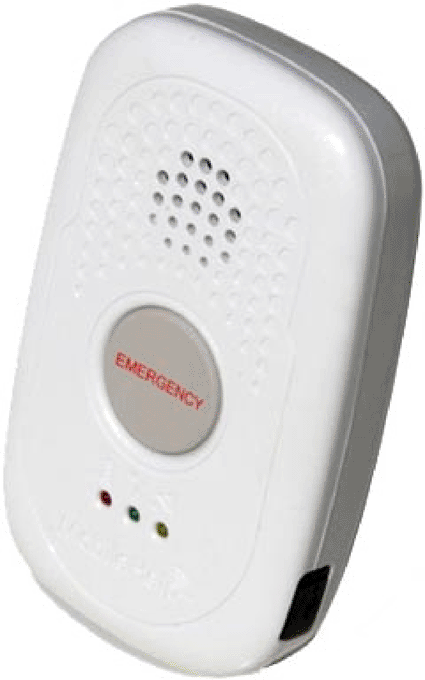
Image: The MobileHelp system pager (Photo courtesy Medical Mobile Monitoring).
A new cellular and global positioning system (GPS)-enabled mobile personal emergency response system (M-PERS) helps locate and assist senior citizens and those with special medical needs.
The MobileHelp system offers round-the-clock medical and emergency monitoring services with real-time notification capabilities through the use of a GPS and cellular-enabled help button. When subscribers need help, they simply press their help button and connect via two-way voice communication to a central monitoring station that is live year round. By the end of 2009, the new technology should also allow family members to check the location of their loved ones over the internet and receive notification via mobile phone and email of their location. The MobileHelp system is a service of Medical Mobile Monitoring (Boca Raton, FL, USA), which also offers ClassicHelp, a traditional in-home medical alert system.
"MobileHelp addresses many of the limitations that exist with traditional medical alert systems currently on the market, namely the problem of the current technology only working in the home. With our system, individuals are no longer confined to their homes, and will have help when and where they need it, with our anywhere help button,” said Elias Janetis, founder and CEO of Medical Mobile Monitoring. "Statistics show that 40% of fall-related injuries happen outside the home and only MobileHelp will have someone covered in these instances.”
The Global Positioning System is a space-based global navigation satellite system that is made up of three parts: between 24 and 32 satellites in medium earth orbit, four control and monitoring stations on Earth, and the actual navigation devices users own. GPS satellites broadcast signals from space that GPS receivers use to provide three-dimensional location (latitude, longitude, and altitude) plus the time. GPS has become a mainstay of transportation systems worldwide, providing navigation for aviation, ground, and maritime operations. Disaster relief and emergency services depend upon GPS for location and timing capabilities in their life-saving missions.
Related Links:
Medical Mobile Monitoring
The MobileHelp system offers round-the-clock medical and emergency monitoring services with real-time notification capabilities through the use of a GPS and cellular-enabled help button. When subscribers need help, they simply press their help button and connect via two-way voice communication to a central monitoring station that is live year round. By the end of 2009, the new technology should also allow family members to check the location of their loved ones over the internet and receive notification via mobile phone and email of their location. The MobileHelp system is a service of Medical Mobile Monitoring (Boca Raton, FL, USA), which also offers ClassicHelp, a traditional in-home medical alert system.
"MobileHelp addresses many of the limitations that exist with traditional medical alert systems currently on the market, namely the problem of the current technology only working in the home. With our system, individuals are no longer confined to their homes, and will have help when and where they need it, with our anywhere help button,” said Elias Janetis, founder and CEO of Medical Mobile Monitoring. "Statistics show that 40% of fall-related injuries happen outside the home and only MobileHelp will have someone covered in these instances.”
The Global Positioning System is a space-based global navigation satellite system that is made up of three parts: between 24 and 32 satellites in medium earth orbit, four control and monitoring stations on Earth, and the actual navigation devices users own. GPS satellites broadcast signals from space that GPS receivers use to provide three-dimensional location (latitude, longitude, and altitude) plus the time. GPS has become a mainstay of transportation systems worldwide, providing navigation for aviation, ground, and maritime operations. Disaster relief and emergency services depend upon GPS for location and timing capabilities in their life-saving missions.
Related Links:
Medical Mobile Monitoring
Latest Patient Care News
- First-Of-Its-Kind Portable Germicidal Light Technology Disinfects High-Touch Clinical Surfaces in Seconds
- Surgical Capacity Optimization Solution Helps Hospitals Boost OR Utilization

- Game-Changing Innovation in Surgical Instrument Sterilization Significantly Improves OR Throughput
- Next Gen ICU Bed to Help Address Complex Critical Care Needs
- Groundbreaking AI-Powered UV-C Disinfection Technology Redefines Infection Control Landscape
- Clean Hospitals Can Reduce Antibiotic Resistance, Save Lives
- Smart Hospital Beds Improve Accuracy of Medical Diagnosis
- New Fast Endoscope Drying System Improves Productivity and Traceability
- World’s First Automated Endoscope Cleaner Fights Antimicrobial Resistance
- Portable High-Capacity Digital Stretcher Scales Provide Precision Weighing for Patients in ER
- Portable Clinical Scale with Remote Indicator Allows for Flexible Patient Weighing Use
- Innovative and Highly Customizable Medical Carts Offer Unlimited Configuration Possibilities
- Biomolecular Wound Healing Film Adheres to Sensitive Tissue and Releases Active Ingredients
- Wearable Health Tech Could Measure Gases Released From Skin to Monitor Metabolic Diseases
- Wearable Cardioverter Defibrillator System Protects Patients at Risk of Sudden Cardiac Arrest
- World's First AI-Ready Infrasound Stethoscope Listens to Bodily Sounds Not Audible to Human Ear
Channels
Artificial Intelligence
view channel
AI-Powered Algorithm to Revolutionize Detection of Atrial Fibrillation
Atrial fibrillation (AFib), a condition characterized by an irregular and often rapid heart rate, is linked to increased risks of stroke and heart failure. This is because the irregular heartbeat in AFib... Read more
AI Diagnostic Tool Accurately Detects Valvular Disorders Often Missed by Doctors
Doctors generally use stethoscopes to listen for the characteristic lub-dub sounds made by heart valves opening and closing. They also listen for less prominent sounds that indicate problems with these valves.... Read moreCritical Care
view channel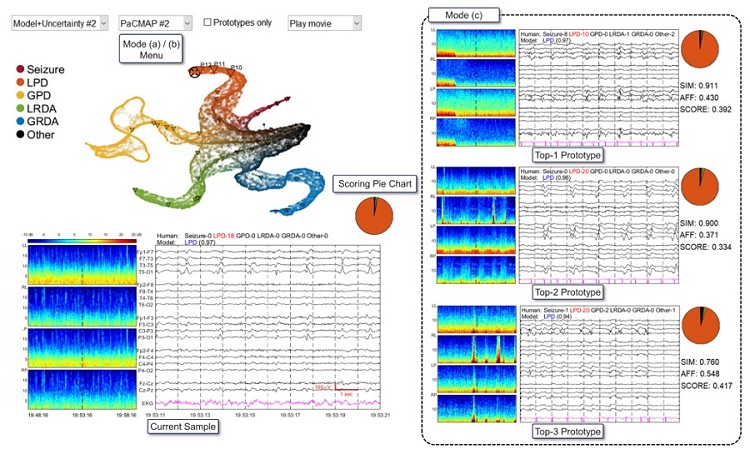
AI Doubles Medical Professionals’ Accuracy in Reading EEG Charts of ICU Patients
Electroencephalography (EEG) readings are crucial for detecting when unconscious patients may be experiencing or are at risk of seizures. EEGs involve placing small sensors on the scalp to measure the... Read moreFlexible Device Enables Sweat Gland Stimulation and Simultaneous Biosensing
Human sweat is rich in biomarkers that can be used to monitor a range of health conditions, from diabetes to genetic disorders. Many users prefer sweat sampling over blood collection because it is painless.... Read more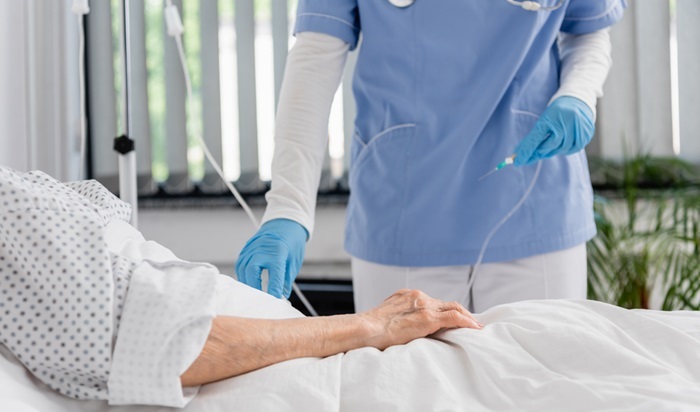
WHO Publishes First Global Guidelines to Reduce Bloodstream Infections from Catheter Use
Up to 70% of all inpatients require a catheter, specifically a peripherally inserted catheter (PIVC), at some point during their hospital stay. Patients who receive treatments via catheters are particularly... Read moreSurgical Techniques
view channel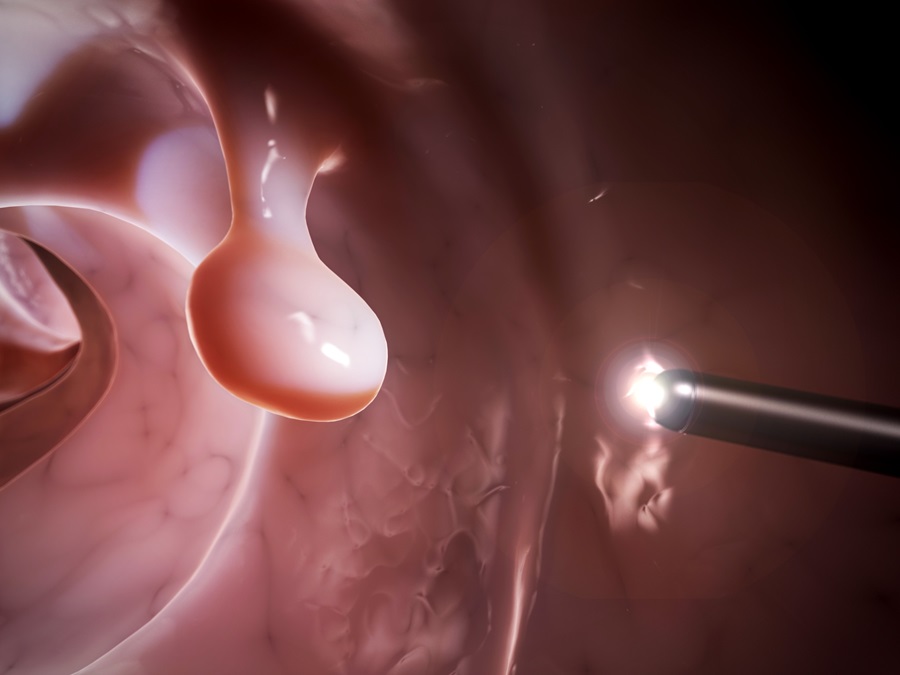
Study Warns Against Dangerous Smoke Levels Produced During Endoscopic Gastrointestinal Procedures
Healthcare professionals involved in certain smoke-generating endoscopic gastrointestinal procedures, such as those using electrical current to excise polyps, may be exposed to toxin levels comparable... Read more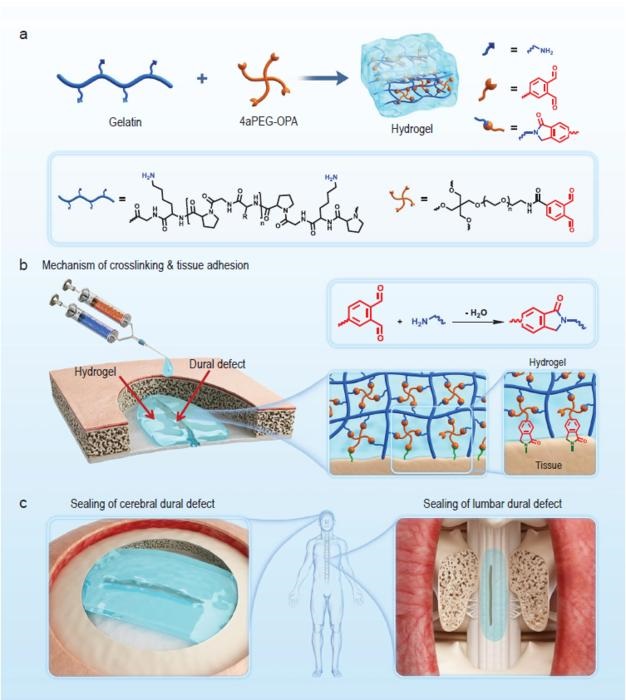
New Hydrogel Sealant Effective at Sealing Dural Defects and Preventing Postoperative Adhesion
The dura mater is a fibrous membrane of connective tissue that envelops the brain and spinal cord. In neurosurgical procedures that require access to the brain or spinal cord, opening the dura mater often... Read more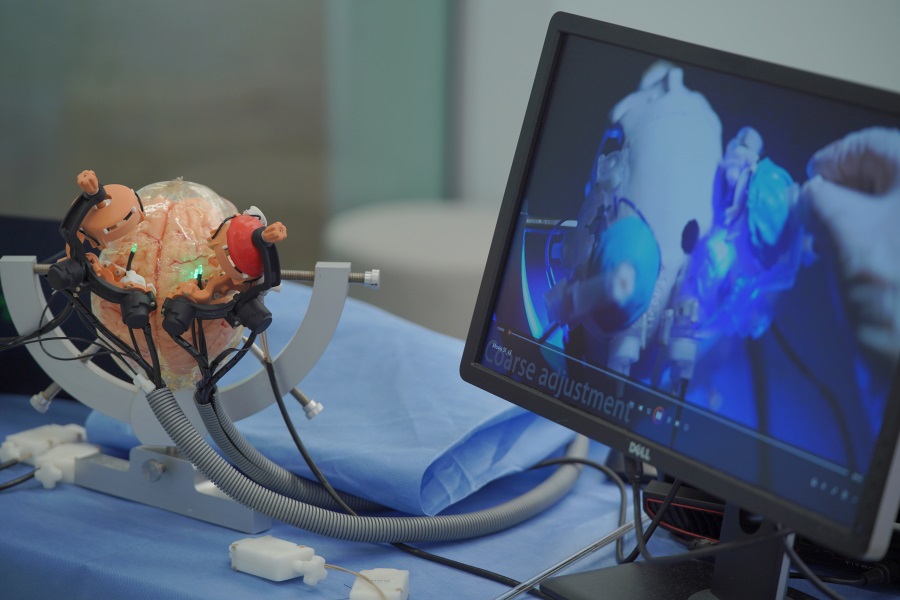
MRI-Guided Multi-Stage Robotic Positioner Enhances Stereotactic Neurosurgery Precision
Magnetic resonance imaging (MRI) offers significant benefits in neurosurgery, providing detailed 3D visualizations of neurovascular structures and tumors. Traditionally, its use has been restricted to... Read moreHealth IT
view channel
Machine Learning Model Improves Mortality Risk Prediction for Cardiac Surgery Patients
Machine learning algorithms have been deployed to create predictive models in various medical fields, with some demonstrating improved outcomes compared to their standard-of-care counterparts.... Read more
Strategic Collaboration to Develop and Integrate Generative AI into Healthcare
Top industry experts have underscored the immediate requirement for healthcare systems and hospitals to respond to severe cost and margin pressures. Close to half of U.S. hospitals ended 2022 in the red... Read more
AI-Enabled Operating Rooms Solution Helps Hospitals Maximize Utilization and Unlock Capacity
For healthcare organizations, optimizing operating room (OR) utilization during prime time hours is a complex challenge. Surgeons and clinics face difficulties in finding available slots for booking cases,... Read more
AI Predicts Pancreatic Cancer Three Years before Diagnosis from Patients’ Medical Records
Screening for common cancers like breast, cervix, and prostate cancer relies on relatively simple and highly effective techniques, such as mammograms, Pap smears, and blood tests. These methods have revolutionized... Read morePoint of Care
view channel
POCT for Infectious Diseases Delivers Laboratory Equivalent Pathology Results
On-site pathology tests for infectious diseases in rural and remote locations can achieve the same level of reliability and accuracy as those conducted in hospital laboratories, a recent study suggests.... Read more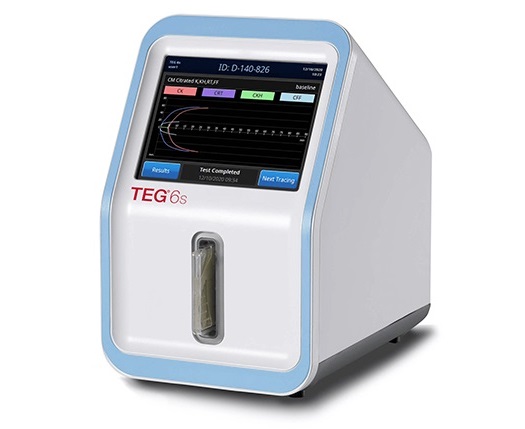
Cartridge-Based Hemostasis Analyzer System Enables Faster Coagulation Testing
Quickly assessing a patient's total hemostasis status can be critical to influencing clinical outcomes and using blood products. Haemonetics Corporation (Boston, MA, USA) has now obtained 510(k) clearance... Read more
Critical Bleeding Management System to Help Hospitals Further Standardize Viscoelastic Testing
Surgical procedures are often accompanied by significant blood loss and the subsequent high likelihood of the need for allogeneic blood transfusions. These transfusions, while critical, are linked to various... Read moreBusiness
view channel
MEDICA INNOVATION FORUM for the Healthcare Innovations of the Future
By always offering innovations and updating existing program formats, the internationally leading medical trade fair MEDICA in Düsseldorf has been successful for over half a century and always gives its... Read more












